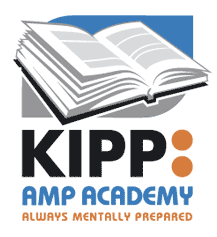Ashley Fahey

Brian Williams moderated a discussion at Elon University about confronting challenges facing America and the world. Photo by Heather Cassano.
“Are we going to go forward? Are we going to achieve like we know we can as a country?”
These questions were posed by Brian Williams, anchor and managing editor of NBC Nightly News. Williams led the conversation We Can Be Better: Courageous Voices Confront Our Greatest Challenge on Thursday, April 7 at Elon University’s annual Spring Convocation for Honors. Students who have achieved academic success were acknowledged and notable guest speakers took part in the panel moderated by Williams. The conversation addressed important social issues, in the past, present and future.
“I’m here today in the capacity only as an Elon parent,” said Williams in his opening address. “We can be better. In this nation, in this day and age, we can be.”
Williams addressed all members of the panel, asking their opinions and thoughts about issues related to religion, education, politics and other relevant topics. All panelists offered their insight and opinions, frequently connecting the issues at hand to the college-aged generation.
“In this country, if you get a good education, work hard, have solid values, you have unlimited opportunity,” said David Walker, founder and chief executive officer of the Comeback America Initiative. “America is a great country and once we rally, we can do anything. Young people need to be involved because this is your future. Your future is being mortgaged, investments are being cut and, in addition to that, you’re going to face tougher competition.”
Every panelist approached the conversation with a perspective that pertained to his or her background or area of expertise, but all individuals emphasized the importance of young generations participating.
“I think it would be helpful to talk about things that people can do across multiple sectors, but also to be inspirational to young people,” said Shirley Ann Jackson, president of Rensselaer Polytechnic Institute. “Because of you, the future is great. We do have a responsibility and an opportunity to inform.”

KIPP is a program started by David Levin, one of the panelists at the convocation. Image courtesy of Gotham Schools.
The achievements and innovations by the panelists acted as a framework for the potential of college students. All panelists discussed their own personal expertise and experiences, which segued into discussion about programs and movements to what Generation Y can do for their country. David Levin, co-founder of the Knowledge is Power Program (KIPP), talked about how education is one of the keys in solving America’s problems.
“KIPP is a national network of public schools located in low-income neighborhoods, in which the predicted college graduation rate is 8.3 percent,” said Levin. He compared the problem of the college graduation generation to that of the students in KIPP schools. “One of the challenges the young face is the idea that it takes so long. The problems that we have and the commitments that we need are going to take folks who are willing to make that commitment.”
All of the panelists agreed that the time to take an active role in overcoming the challenges facing the country is now. David Gergen, senior political activist for CNN, said that America cannot afford to wait any longer.
“We let things accumulate and then, unfortunately, we may get hit with crises in your generation and then you pay a huge price,” he said. “We face a tough future. You can be the leaders of today. We cannot wait another 10 years because it takes a long time to get hard work done.”
But the biggest focus for the college generation is doing something that you love, according to Eboo Patel, founder and executive director of the Interfaith Youth Center. His path began when his parents immigrated to America from India and he said he knew exactly what he was meant to do.
“Ultimately, when it comes to who you are in the world, you have to do what you love,” said Patel. “I didn’t choose my life based on who was suffering most in the world. I had to do what I loved and then figure out how I was going to give it away.”